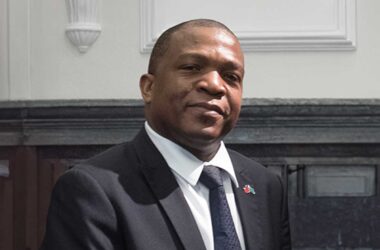Prime Minister Philip J Pierre was on to something good when in November of last year, he launched the ‘Youth Economy’, an innovative idea, which if handled the way it should be by the technocrats, and receives an enthusiastic response from the targeted demographic, would go a long way towards solving the big problem of unemployment among the island’s youthful population.
The plan the prime minister has looks good on paper and every indication of it says that it stands to benefit the people it targets. But plans on paper do not materialize without human commitment.
With Saint Lucia having a large percentage of its population under the age of 35, a demographic which registers high double digits in unemployment percentages, there is no doubt that the youth welfare is an essential need that has to be addressed at the level of government.
Taking into consideration the speed of technological advance, which increases the generations’ gap, the Youth Economy concept can certainly capitalise on emerging industries, bring out the potentials of our youth and, in a great many ways, create a more stable socio-economy environment in Fair Helen.
We believe that this Youth Economy idea has the potential to provide our youthful population with the skills, knowledge and confidence needed to succeed, and by succeed, we mean get out of poverty.
To be fair, youth unemployment and sustainable decent job creation have always been issues high up on the agendas of past administrations of this country. Why some administrations have not been able to effectively tackle these issues could be discussed under the comments section of this editorial on our website www.thevoiceslu.com
Let’s be frank here. While Saint Lucia, over the years, has registered some successful young persons in certain fields, the majority of young people have been receiving the short end of the stick. Today we are witnessing significant social repercussions in the country as a result of youth unemployment and lack of opportunities. This type of situation affects the prosperity, stability and equality within our country and our country’s sustainable development.
A robust Youth Economy could lead many of our young people out of poverty, a point we firmly believe in. Not simply because it can provide a young person with a job, after all it is known that employment no longer guarantees a way out of poverty, but because it could provide a road-map to get themselves out of the class of workers referred to as the ‘working poor’.
It must be noted that the Youth Economy idea is all about gender equality. According to plan international.org within the context of youth employment, which the Youth Economy is geared towards, gender equality deserves particular attention.
Said the website, “Discriminatory gender norms and stereotypes, widespread discrimination and gender-based inequalities create pervasive obstacles to the realisation of girls and young women’s rights and set the stage for economic and gender-based inequalities directly impacting girls and young women’s economic empowerment.
“Gender norms, in fact, affect the likelihood of a young woman entering and participating in the labour market, which types of jobs she can pursue, how much she will be paid and how far she can advance in her career. It is hence paramount for policy strategies to support inclusive sustainable youth employment by simultaneously advancing gender inequality.”
With what we have gleaned from our survey of the Youth Economy idea, no one gender is being advanced over another, as strong and equal attention is given to both genders. The idea’s policies are not gender focused, but rather exist solely to create opportunities and provide young people with the skills needed to secure decent work.
We are not underestimating the benefits of the Youth Economy programme to young people and the country in general, as we believe in what it can do for the jobless and ambitious young men and women in our midst.
Our only concern is that this programme be not bogged down in red tape and smugness by those handling its reins, as these could lead to the handlers failing to see cracks in the programme through which many youths could fall through.













This article has taken an accurate measure of the potentials of this nascent initiative to institute a Youth Economy in the fabric the social and economic development of St. Lucia.
Be mindful, also, that four sturdy pillars must hold up the structure of the Youth Economy –
Oversight – A module that diligently surveys the on-going activities of the initiative
Accountability – A module that accounts for the feasibility of all plans set in motion; whether they are or are not applicable or beneficial to its objectives.
Transparency – A module that fosters operation policies that allow public access to reports and data describing the status of its on-going transactions.
One that solicits public ideas and reviews constructive criticism in evaluating its effectiveness as a public institution.
Foresight – A module that continually scouts for human and environmental resources for innovative methods by which to upgrade and advance its organization.
If these pylons are dug deep in our St.Lucian soil, then, then, Youth Economy will surely be set on on pillars that will last as long as the Egyptian pyramids.
GOD bless St. Lucia.